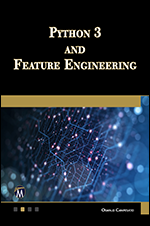Pro C# 8 with .NET Core 3: Foundational Principles and Practices in Programming, Ninth Edition
- 20h 3m
- Andrew Troelsen, Phil Japikse
- Apress
- 2020
Gain a thorough understanding of supervised learning algorithms by developing use cases with Python. You will study supervised learning concepts, Python code, datasets, best practices, resolution of common issues and pitfalls, and practical knowledge of implementing algorithms for structured as well as text and images datasets.
You’ll start with an introduction to machine learning, highlighting the differences between supervised, semi-supervised and unsupervised learning. In the following chapters you’ll study regression and classification problems, mathematics behind them, algorithms like Linear Regression, Logistic Regression, Decision Tree, KNN, Naïve Bayes, and advanced algorithms like Random Forest, SVM, Gradient Boosting and Neural Networks. Python implementation is provided for all the algorithms. You’ll conclude with an end-to-end model development process including deployment and maintenance of the model.
After reading Supervised Learning with Python you’ll have a broad understanding of supervised learning and its practical implementation, and be able to run the code and extend it in an innovative manner.
What You'll Learn
- Review the fundamental building blocks and concepts of supervised learning using Python
- Develop supervised learning solutions for structured data as well as text and images
- Solve issues around overfitting, feature engineering, data cleansing, and cross-validation for building best fit models
- Understand the end-to-end model cycle from business problem definition to model deployment and model maintenance
- Avoid the common pitfalls and adhere to best practices while creating a supervised learning model using Python
Who This Book Is For
Data scientists or data analysts interested in best practices and standards for supervised learning, and using classification algorithms and regression techniques to develop predictive models.
About the Author
Vaibhav Verdhan has 12+ years of experience in Data Science, Machine Learning and Artificial Intelligence. An MBA with engineering background, he is a hands-on technical expert with acumen to assimilate and analyse data. He has led multiple engagements in ML and AI across geographies and across retail, telecom, manufacturing, energy and utilities domains. Currently he resides in Ireland with his family and is working as a Principal Data Scientist.
In this Book
-
Introducing .NET Core
-
Building C# Applications
-
Core C# Programming Constructs, Part 1
-
Core C# Programming Constructs, Part 2
-
Understanding Encapsulation
-
Understanding Inheritance and Polymorphism
-
Understanding Structured Exception Handling
-
Working with Interfaces
-
Understanding Object Lifetime
-
Collections and Generics
-
Advanced C# Language Features
-
Delegates, Events, and Lambda Expressions
-
LINQ to Objects
-
Processes, AppDomains, and Load Contexts
-
Multithreaded, Parallel, and Async Programming
-
Building and Configuring Class Libraries
-
Type Reflection, Late Binding, and Attribute-Based Programming
-
Dynamic Types and the Dynamic Language Runtime
-
Understanding CIL and the Role of Dynamic Assemblies
-
File I/O and Object Serialization
-
Data Access with ADO.NET
-
Introducing Entity Framework Core
-
Finishing the Data Access Layer
-
Introducing Windows Presentation Foundation and XAML
-
WPF Controls, Layouts, Events, and Data Binding
-
WPF Graphics Rendering Services
-
WPF Resources, Animations, Styles, and Templates
-
WPF Notifications, Validations, Commands, and MVVM
-
Introducing ASP.NET Core
-
RESTful Services with ASP.NET Core
-
MVC Applications with ASP.NET Core




